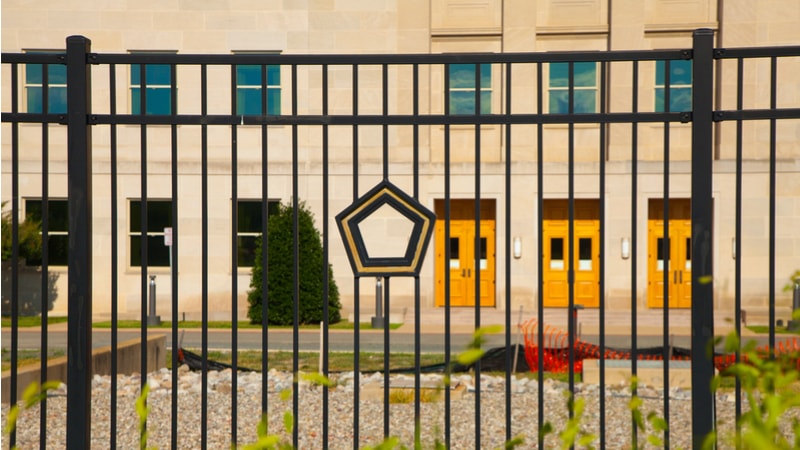
The House narrowly passed the $883.7 billion defense policy bill today with a 217-199 vote.
The Service Member Quality of Life Improvement and National Defense Authorization Act (NDAA) for fiscal year (FY) 2025, typically backed by both parties, faced criticism this year due to the incorporation of numerous hardline conservative amendments, many of which targeted diversity, equity, inclusion, and accessibility (DEIA) efforts.
In a largely partisan split, 196 Democrats voted no, while six supported the bill. On the other side of the aisle, Republicans overwhelmingly endorsed the bill, with 211 casting their votes in favor and three opposing.
Over the past three days, lawmakers debated more than 350 amendments on the House floor, including three measures to eliminate the role of the Defense Department’s (DoD) chief diversity office, eliminate all DEIA-related offices at the Pentagon and military, and institute a permanent hiring freeze on all jobs related to DEIA.
Before the bill went to a vote, eight Democratic members of the House Armed Services Committee, including its ranking member Rep. Adam Smith, D-Wash., released a statement criticizing the GOP’s amendment to the NDAA and urged other members to vote against the bill.
“The adoption of poison pill amendment[s] … undermines the purpose of the defense bill by demeaning service members and degrading our national defense. That is why we oppose the final passage of the NDAA, as amended, on the House floor,” the statement read.
Despite the partisan divides surrounding this year’s NDAA, the bill contains several provisions that gained significant bipartisan support, including measures that would authorize critical investments in artificial intelligence technology, strengthen cyber capabilities, and bolster various technology initiatives at the DoD.
During his remarks on the House floor ahead of the final vote, Rep. Smith acknowledged that several provisions in the NDAA make it “very, very good,” but anti-DEIA provisions jeopardize the objectives of the defense bill.
Another aspect of the bill that continues to garner bipartisan support is the proposal for a 19.5 percent pay raise for junior enlisted service members and a 4.5 percent pay raise for all other service members.
Rep. Mike Rodgers, R-Ala., chairman of the House Armed Services Committee, emphasized the pay raise in his statement following the vote.
“Today, the House voted to increase pay for junior enlisted service members by 19.5 percent,” he said, “Our service members are the bedrock of our national security [and] strengthening our military starts by ensuring our service members are taken care of.”
The Senate Armed Services Committee expects to release its version of the defense bill soon. Both committees must agree on a compromise version of the bill that will be taken up in its final form by both the House and Senate a second time.
